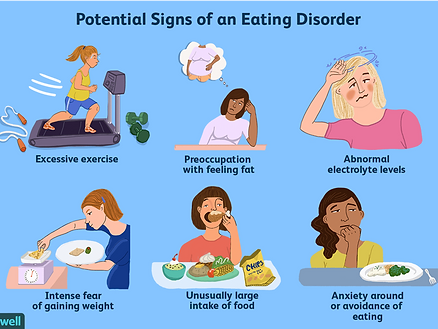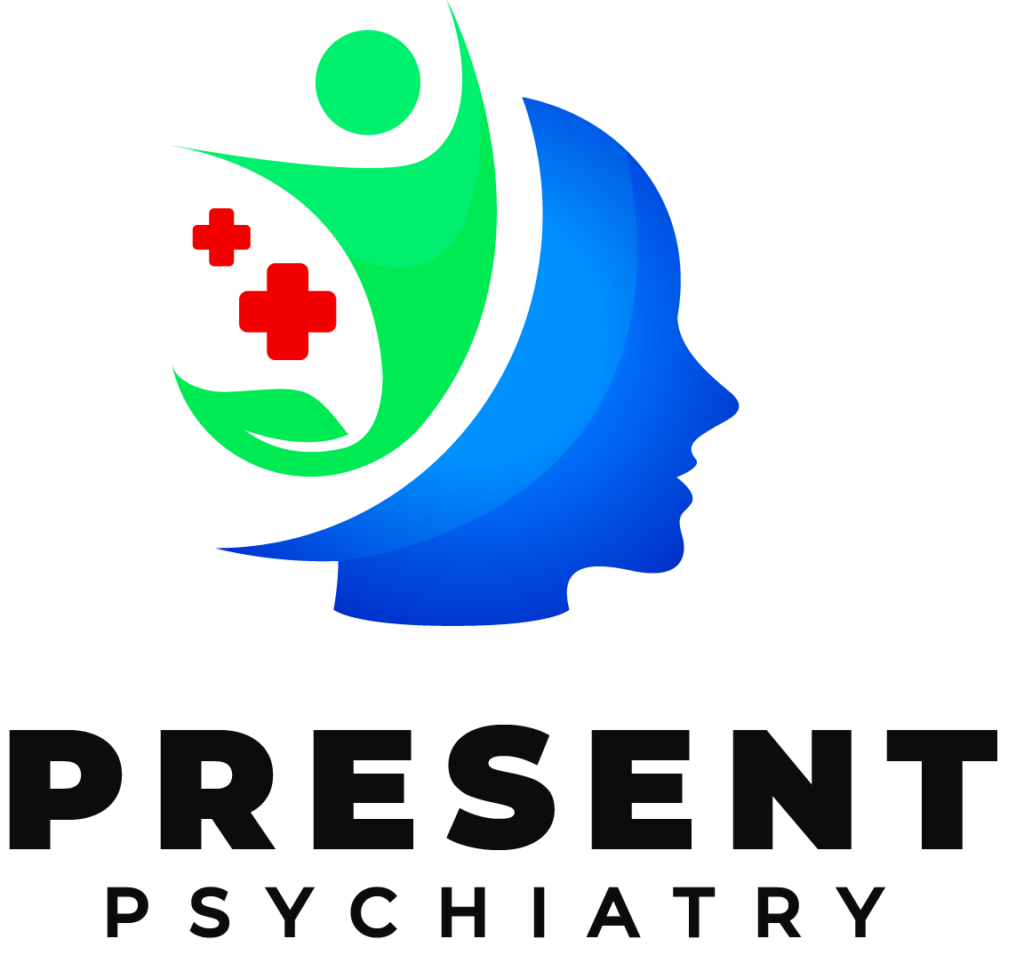Eating disorders are complex psychological conditions that extend far beyond unhealthy eating habits or body image concerns. They are serious mental health issues that can lead to significant physical and emotional harm if left unaddressed. In fact, eating disorders are among the deadliest mental health conditions, often requiring immediate intervention for recovery. As awareness grows, so does the importance of recognizing the early warning signs, which could help prevent long-term damage and promote healthier behaviors.
What Are Eating Disorders?
Eating disorders are characterized by abnormal eating habits that may involve either extreme restriction of food, binge eating, or purging. They are often linked to mental health conditions such as anxiety, depression, and obsessive-compulsive disorder (OCD). At their core, eating disorders stem from complex psychological issues, including distorted perceptions of self-image, emotional stress, and societal pressures to conform to unrealistic beauty standards.
Recent research reveals staggering statistics about the prevalence of eating disorders. According to the National Eating Disorders Association (NEDA), approximately 9% of the global population suffers from an eating disorder, with the majority of those affected being women. Eating disorders are not limited to any one demographic; they cross cultural, social, and economic lines. The World Health Organization (WHO) reports that eating disorders are on the rise, largely driven by increased societal pressures, particularly in the age of social media and unrealistic body image expectations.
Signs and Symptoms of Eating Disorders

Eating disorders can manifest in a variety of ways, and recognizing the signs early on is crucial for timely intervention. Here are 20 common signs and symptoms that may indicate the presence of an eating disorder:
- Extreme fear of gaining weight
- Skipping meals or refusing to eat
- Binge eating episodes followed by guilt or shame
- Preoccupation with calories, food, and dieting
- Rapid weight gain or loss
- Obsessive exercise routines
- Avoiding social gatherings involving food
- Hair loss or thinning
- Discoloration or weakening of teeth (due to purging)
- Constant fatigue or dizziness
- Irregular menstrual cycles (amenorrhea)
- Mood swings, depression, or anxiety
- Frequent excuses to go to the bathroom after meals
- Digestive issues like constipation or acid reflux
- Swollen salivary glands (in purging disorders)
- Hoarding food or eating in secret
- Feeling out of control during eating
- Cold sensitivity or reduced body temperature
- A distorted body image despite a healthy weight
- Social withdrawal and low self-esteem
Example: The Case of Alice

Alice, a 23-year-old college student, had always been conscious of her appearance. Recently, however, she began to exhibit several signs of an eating disorder. She would skip meals during stressful days, and on weekends, she binged and purged afterward. Alice was preoccupied with calories and her weight. Over time, her friends noticed her social withdrawal and mood swings.
What Alice didn’t realize was that her mental health was deteriorating, and her behaviors stemmed from deeper emotional distress. With the support of Present Psychiatry, Alice sought treatment from Rizwan Ali, a mental health specialist, and his team, who provided her with personalized care to address both her eating disorder and the underlying mental health concerns.
From a psychiatric standpoint, eating disorders are often driven by a combination of psychological, biological, and environmental factors. Psychiatric terms such as Body Dysmorphia (a distorted view of one’s appearance) and Perfectionism (a need for flawless control over one’s body) are commonly associated with these disorders. Additionally, conditions such as Anxiety Disorders and Obsessive-Compulsive Disorder (OCD) often co-occur with eating disorders, complicating treatment and recovery.
It’s important to understand that eating disorders, like Anorexia Nervosa, Bulimia Nervosa, and Binge Eating Disorder, all involve unhealthy thought patterns and behaviors. These disorders can severely impact the individual’s cognitive and emotional well-being, which is why mental health professionals emphasize early intervention and comprehensive treatment strategies.
Treatment Options for Eating Disorders

Recovery from eating disorders is achievable with the right treatment. At Present Psychiatry, we provide a range of evidence-based interventions tailored to each individual’s unique needs. Our multi-faceted approach includes the following treatment options:
- Cognitive Behavioral Therapy (CBT)
CBT helps individuals identify and challenge unhealthy thought patterns related to food and body image, equipping them with healthier coping mechanisms. - Dialectical Behavior Therapy (DBT)
DBT teaches individuals to manage their emotions more effectively, especially those triggered by stress, anxiety, or the pressures of dieting. - Nutritional Counseling
Dietitians work with individuals to create personalized eating plans that restore nutritional balance and promote physical healing. - Medications
Antidepressants and anxiolytics may be prescribed to address co-occurring mental health conditions, such as depression or severe anxiety, ensuring a holistic approach to treatment. - Medical Care and Hospitalization
In severe cases, hospitalization may be necessary to manage physical complications, such as electrolyte imbalances or organ damage caused by malnutrition. - Support Groups
Participating in a supportive community significantly enhances recovery. Sharing experiences in a safe, non-judgmental space fosters healing, motivation, and a sense of belonging.
At Present Psychiatry, our mental health specialist, Rizwan Ali, and his dedicated team provide comprehensive care that addresses both the physical and psychological aspects of eating disorders. They focus on rebuilding self-esteem, restoring health, and guiding individuals through the challenging journey of recovery.

Call to Action: Take the First Step toward Recovery
If you or someone you know is struggling with an eating disorder, do not wait for the situation to worsen. Early intervention is key. Present Psychiatry offers virtual consultations and personalized therapy to help you or your loved one recover.
Contact us today at 832-552-1578 or visit our website at www.presentpsychiatry.com for more information. We are here to help guide you toward a healthier, happier life.
By recognizing the early signs of eating disorders and seeking professional help, individuals can break free from the destructive cycle of disordered eating and take back control of their lives. At Present Psychiatry, we are committed to supporting you through every step of your recovery journey.
Post Tags :
WE STRIVE HARD AND PROMISE TO DELIVER
- 5600 NW Central Dr Suite 280, Houston, TX 77092, United States
- +1 832-552-1578
- inquire@presentpsychiatry.com



